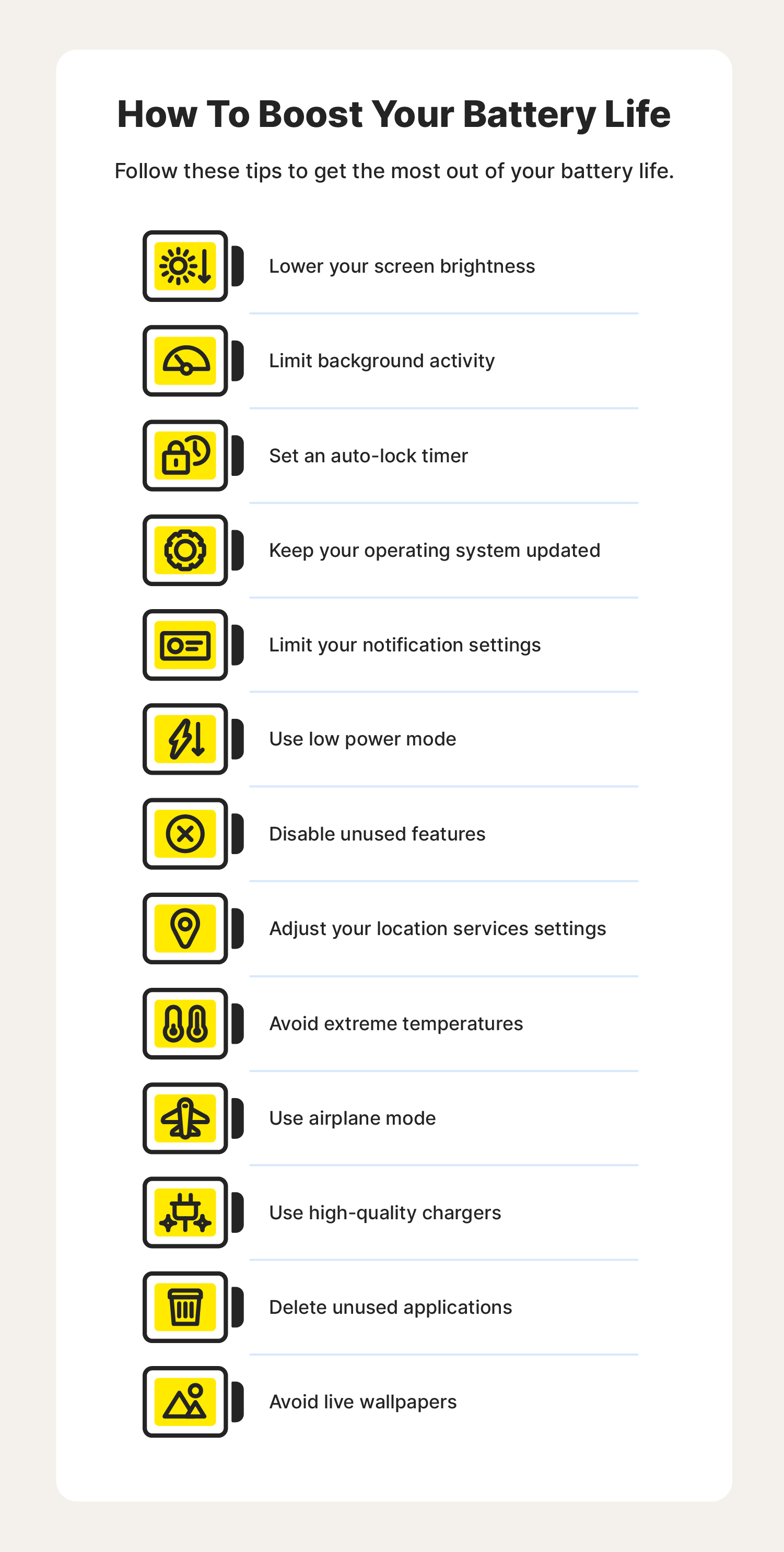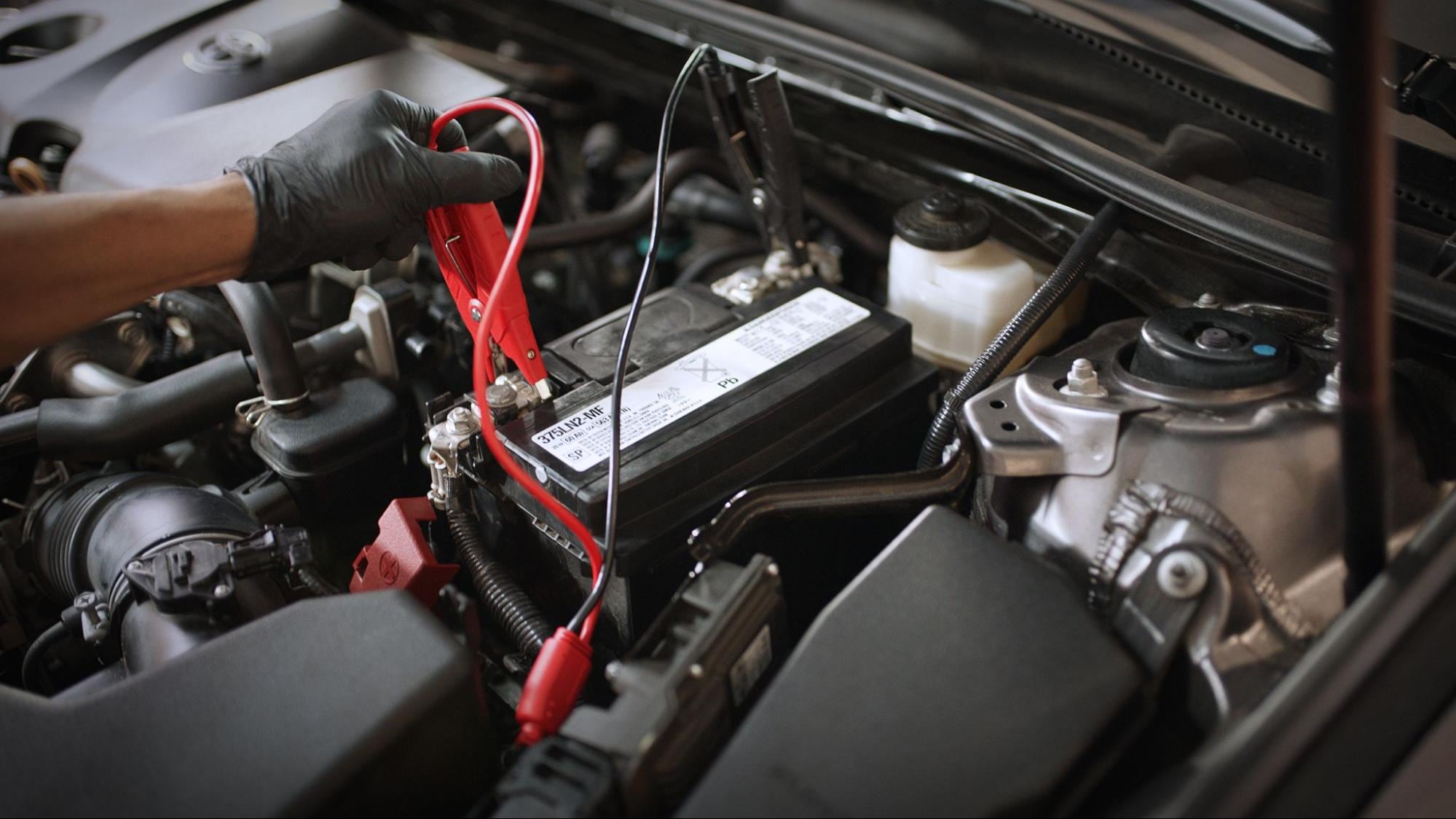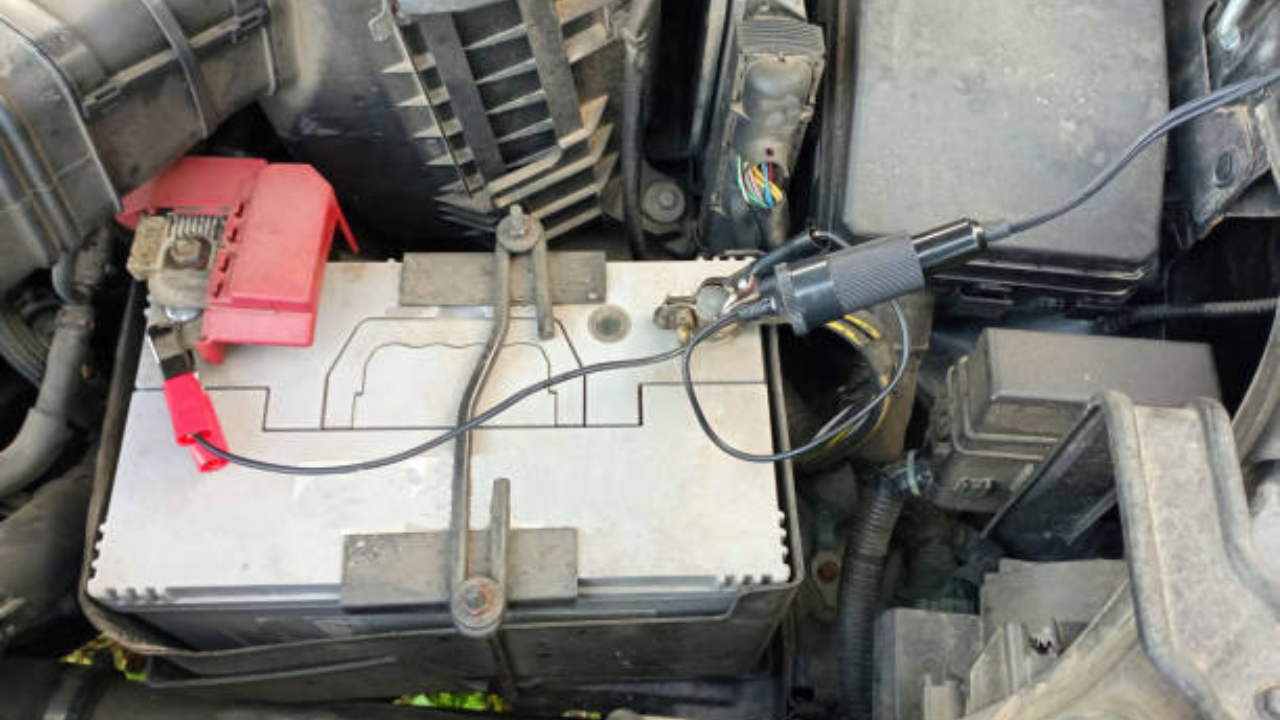Car battery can die repeatedly due to a faulty charging system or parasitic drain. The reasons for a car battery repeatedly dying can range from a malfunctioning alternator or voltage regulator to continuously running electrical accessories when the engine is off.
A dead car battery can be a frustrating and inconvenient problem many car owners experience. You may be constantly dealing with the hassle of jumping-starting your vehicle or getting a new battery. Why, then, does the battery in your car continually die?
This problem has a few common causes. It could be due to a faulty charging system or a phenomenon known as a parasitic drain. We will explore these causes in detail, along with some preventive measures you can take to avoid this recurring problem.
By understanding the underlying reasons behind a constantly dying car battery, you can empower yourself to find a solution and prevent future inconveniences.
Common Reasons For A Dying Car Battery
A car battery can sometimes be the culprit behind frequent breakdowns and unexpected starting problems. Understanding the common reasons why your car battery keeps dying can help you prevent these issues in the future and save you from unnecessary stress and expenses.
Age Of The Battery
Age is one of the most common reasons for a dying car battery. Car batteries only last briefly—usually three to five years.
Over time, the battery’s ability to hold a chabattery diminishes, making it more prone to sudden failures and inadequate performance. If your battery is beyond its expected lifespan, it may be time to consider a replacement.
Corrosion On Battery Terminals
Corrosion on battery terminals can hinder the electrical connection between the battery and the vehicle, causing poor performance and draining the battery. This corrosion build-up is often caused by battery acid leakage or exposure to the elements.
Regularly inspecting and cleaning the battery terminals can help prevent this issue. You can use baking soda and water to scrub the corrosion and ensure a solid connection.
Parasitic Drain
Parasitic drain refers to the energy consumed by electrical components in your car even when the engine is turned off. Specific devices, such as car alarms, interior lights, or aftermarket accessories, can draw power from the battery over time, leading to a drained battery.
To identify the source of the parasitic drain, you can perform a simple test using a multimeter. Once you’ve identified the culprit, you can consult a professional to address the issue.
Keeping your car battery healthy ensures a reliable starting and operating system. Regular maintenance, such as checking the age of the battery, cleaning terminals, and addressing parasitic drains, can help extend the lifespan of your battery and prevent any inconveniences on the road.

Signs Of A Weak Car Battery
Recognizing the signs of a weak car battery can save you from unexpected breakdowns and inconveniences. A weak battery can cause your car to struggle when starting up and may even lead to complete failure.
This blog post will explore three common signs indicating your car battery is losing power. By understanding these signs, you can take the necessary steps to prevent your car battery from dying prematurely and ensure a reliable vehicle.
Slow Engine Crank
A slow engine crank is one of the classic signs of a weak car battery. When you turn the key in the ignition, a healthy battery should provide enough power to start the engine quickly. However, if your battery is weak, it may struggle to deliver a sufficient charge, causing the engine to crank slowly.
You may notice the engine turning over reluctantly or taking longer to start than usual. This can be attributed to the decreased voltage in a weak battery, which cannot provide the necessary electrical power for a smooth and prompt start.
Dashboard Warning Lights
Your car’s dashboard is equipped witcar’sning lights that illuminate when there is an issue with the vehicle. Certain warning lights may come on in the case of a weak battery. Look for unusual or persistent lights, such as the battery or check engine light.
These lights indicate that your battery cannot supply enough power to the electrical components of your car. Although it is important to note that dashboard warning lights may also indicate other problems, a weak battery should not be ruled out as a potential cause.
Non-responsive Electrical Components
A weak car battery can also manifest as non-responsive electrical components. If your headlights, radio, or power windows are not functioning as they should, it may be due to a lack of power from the battery.
Dim headlights, a slow or non-existent radio display, and slow-moving power windows are all signs that the battery is struggling to provide enough electricity.
These symptoms are especially noticeable when you attempt to use these components while the car is idling or turned off. In such cases, a weak battery may not be able to sustain the electrical demands, resulting in limited or no functionality.
Tips To Extend The Life Of Your Car Battery
If you’ve ever had the frustratingyou’veience of a dead car battery, you know the importance of keeping it in good condition. Fortunately, there are several simple tips to help extend the life of your car battery.
By following these strategies, you can avoid the inconvenience of a dead battery, save money, and ensure your vehicle starts reliably every time.
Regular Maintenance
Regular maintenance is crucial for prolonging the life of your car battery. This includes checking the battery terminals for corrosion and ensuring they are tight and clean.
Additionally, be sure to have the battery and electrical system inspected regularly by a professional to detect any potential issues early on.
Avoid Short Trips
Short trips can lead to a build-up of acid in the battery, causing it to deteriorate faster. Long drives allow the battery to recharge fully, so try to combine multiple short trips into one longer journey whenever possible.
Use A Battery Tender
Using a Battery Tender can help maintain the charge of your battery when the vehicle is not in use for an extended period. This device will keep your battery at an optimal level, preventing it from dying due to lack of use.

Credit: us.norton.com
How Weather Affects Your Car Battery
Extreme weather and frigid temperatures can significantly impact your car battery. Freezing temperatures can cause the battery’s capacity to drop, leabattery’sower loss. In addition, heat can cause the liquid inside the battery to evaporate, leading to potential damage and reduced lifespan.
Extreme temperatures can significantly impact the health and performance of your car battery. Both extreme cold and extreme heat can cause your car battery to become weak and less reliable over time.
Extreme Cold
In freezing temperatures, your car battery’s ability to generate the battery’s finishes. The cold weather slows down the chemical reactions within the battery, reducing its capacity to deliver electrical energy.
When you start your car on a chilly morning, your battery may struggle to provide enough power to turn over the engine. Cold weather is a common reason car batteries die, especially if they are already weak or old.
To survive frigid temperatures, it’s essential to take extra protection. Consider parking your car in a garage or using a battery warmer or insulation blanket to protect your battery from freezing. Additionally, turning off any unnecessary electrical loads, such as lights or radio, before shutting down your car can help prolong your battery’s life during a cold, weak battery.
While extreme cold can be harsh on car batteries, extreme heat can be equally damaging. High temperatures cause the electrolyte solution inside the battery to evaporate faster, decreasing battery fluid levels. This evaporation affects the battery’s performance and shortens its lifespan.
When the weather gets hot, it’s essential to protect your battery. Park your car in shaded areas whenever possible to minimize exposure to direct sunlight. If shade is unavailable, consider using a windshield sunshade to keep your car cooler.
It’s also crucial to regularly check the It’sery terminals for corrosion and clean them if necessary. Removing any corrosion on the terminals helps maintain good electrical contact, allowing your battery to perform optimally in hot weather.
Extreme weather conditions can take a toll on your car battery. By understanding the effects of extreme cold and extreme heat, you can take preventative measures to ensure your battery remains healthy and lasts as long as possible. Regular maintenance and monitoring are vital to keeping your car battery in peak condition.
Professional Help And Battery Replacement
Are you having trouble with a constantly dying car battery? Get professional help for battery replacement to solve the issue efficiently. Let experts diagnose the problem and provide the right solution for a reliable and long-lasting battery performance.
Seeking Professional Diagnosis
If you have been experiencing repeated battery failures in your car and are unable to identify the root cause, it may be time to seek professional help. Expert technicians have the knowledge and diagnostic tools necessary to accurately assess the condition of your battery and determine what may be causing it to die.
They can perform a thorough inspection of your vehicle’s electrical system and vehicle’s any underlying issues that may be contributing to the problem. Seeking a professional diagnosis is essential to ensure the correct action is taken to resolve the battery drain issue.
Choosing The Right Replacement Battery
Once a professional has determined that your battery needs to be replaced, it is crucial to choose a suitable replacement. Selecting the correct battery will ensure optimal performance and increase your new battery’s lifespan. Several factors need to be considered when choosing a replacement battery, including the size, capacity, and compatibility with your vehicle.
It is advisable to consult your vehicle’s owner’s manual or seek a vehicle from a knowledgeable professional to ensure you select the correct battery. Purchasing a battery that meets the manufacturer’s specifications will help prevent future battery issues.
To summarize, if your car battery keeps dying, seeking professional help for diagnosis and finding the correct replacement battery is essential. With expert assistance, you can identify the underlying causes of battery drain and ensure you choose a replacement battery compatible with your vehicle.
Taking these steps will save you from the frustration of repeated battery failures and ensure that your vehicle operates smoothly and reliably.

Credit: www.firestonecompleteautocare.com
Why does my car battery keep dying when I don’t drive it
There could be several reasons your car battery dies when you don’t drive it. Here are some common issues to consider:
- Parasitic Drain: Some electrical components in your car may continue to draw power even when the ignition is off. This parasitic drain can be caused by faulty wiring, a malfunctioning component, or leaving accessories plugged in.
- Old or Faulty Battery: Car batteries have a limited lifespan, typically around 3-5 years. If your battery is old or has a manufacturing defect, it may not hold a charge well, leading to repeated dead battery issues.
- Charging System Problems: Issues with the alternator or voltage regulator can prevent the battery from charging properly while you drive. If the charging system is not functioning correctly, the battery will gradually lose its charge.
- Climate Conditions: Extreme temperatures and freezing weather can affect the chemical reactions inside the battery and reduce its efficiency.
- Corroded Battery Terminals: Corrosion on the battery terminals can inhibit the flow of electricity between the battery and the car’s electrical system.
To troubleshoot the issue, you can:
- Perform a battery load test to check its overall health.
- Use a multimeter to measure the parasitic drain when the car is off.
- Check for corrosion on the battery terminals and clean them if necessary.
- Have the charging system (alternator and voltage regulator) tested?
If you’re uncomfortable diagnosing and fixing these issues, you should take your car to a professional mechanic for a thorough inspection and repair.
My car battery keeps dying while parked.
If your car battery is consistently dying while parked, it’s likely due to a persistent issue causing a parasitic drain on the battery. Here are some steps you can take to identify and address the problem:
- Check for Accessories and Lights: Ensure that all lights, including interior lights, trunk lights, and under-hood lights, are turned off when the car is parked. Also, ensure that accessories like phone chargers or other electronic devices are unplugged.
- Perform a Parasitic Draw Test: This test measures the current draw when the vehicle is turned off. You can use a multimeter in series with the battery cable to check for abnormal current draw. If the draw is higher than usual (usually around 50 milliamps or less for most vehicles), it indicates a parasitic drain.
- Inspect Wiring and Components: Check for any signs of damaged or frayed wiring and loose or corroded connections. Pay attention to components like the alternator, starter, and any aftermarket accessories that might be improperly wired.
- Have the Battery Tested: Even if the battery is relatively new, it must be in good condition. A faulty battery can contribute to repeated issues. Have a professional perform a load test on the battery to assess its health.
- Visit a Professional Mechanic: If you cannot identify the issue independently, it’s advisable to take your car to a qualified mechanic. They can use specialized tools and equipment to pinpoint the source of the parasitic drain and address the problem.
Remember that diagnosing and fixing electrical issues can sometimes be complex, and professional assistance may be necessary. A mechanic with experience in automotive electrical systems can save you time and ensure the problem is accurately identified and resolved.
Why does my car battery keep Dying after jump start
If your car battery keeps dying even after a jump start, it could indicate an underlying issue beyond a dead battery. Here are some possible reasons why your car battery may not be holding a charge:
- Weak or Failing Battery: The battery may be old, weak, or failing. A weak battery might not hold a charge for long, even with a jump start.
- Faulty Charging System: The alternator or voltage regulator may malfunction. These components are responsible for charging the battery while the engine is running. If they are not working correctly, the battery may not recharge as it should.
- Parasitic Drain: There could be a parasitic drain, which means some electrical components in your car are drawing power even when the ignition is off. This constant draw can lead to a drained battery over time.
- Corroded or Loose Battery Connections: Corrosion on the battery terminals or loose connections can hinder the flow of electricity between the battery and the car’s electrical system. This can prevent the battery from charging correctly.
- Faulty Starter: A malfunctioning starter can strain the battery, causing it to discharge quickly.
- Electrical Issues: Issues with the vehicle’s electrical system, such as a short circuit or malfunctioning component, can lead to a drain on the battery.
To troubleshoot the issue:
- Check the battery’s age and condition.
- Test the charging system, including the alternator and voltage regulator.
- Perform a parasitic draw test to identify any unnecessary power consumption.
- Inspect and clean the battery terminals.
- Check for loose or damaged wiring.
If you cannot diagnose the problem on your own, it’s recommended that you seek the assistance of a qualified mechanic. They can perform a thorough inspection, use specialized tools, and provide a more accurate diagnosis of the underlying issue.
Frequently Asked Questions For Why Does My Car Battery Keep Dying
Why Is My Car Battery Dying So Quickly?
Several reasons for your car battery to die quickly include a faulty alternator, parasitic drain, or frequent short trips that don’t allow the battery to malfunction. It’s best to have your car checIt’sby a professional to determine the exact cause.
How Often Should I Replace My Car Battery?
On average, car batteries tend to last about 3-5 years. However, this can vary depending on various factors, such as your climate and driving habits. It’s a good idea to have your battery tested regularly and replace it if it’s over 3 years old or shows signs of weakness.
Can Extreme Temperatures Affect My Car Battery?
Yes, extreme temperatures can affect your car battery’s performance. Cold weabattery’sreduce the battery’s capacity, making it hbattery’sstart the engine. On the other hand, hot weather can cause the battery’s electrolytes to evaporate quickly, leading to battery failure.
Protecting your battery from extreme temperatures can help prolong its lifespan.
What drains a car battery when the car is off?
Parasitic electrical loads, such as clocks, alarms, or faulty components, can drain a car battery when the car is off.
Why does my car battery keep dying if the battery is good?
If your car battery keeps dying despite being in good condition, it could be due to a parasitic electrical drain, a faulty alternator, or issues with the charging system.
How do I stop my car battery from draining so fast?
To prevent fast battery drainage:
- Fix Parasitic Drains: Identify and resolve issues with components drawing power when the car is off.
- Regular Maintenance: Keep the battery clean and well-connected.
- Check Charging System: Ensure the alternator and charging system are functioning correctly.
- Drive Regularly: Avoid extended periods of inactivity.
- Moderate Temperature: Park in environments with moderate temperatures to minimize weather-related effects.
How can I tell if my alternator is draining my battery?
If your alternator drains your battery, you may notice warning signs such as dimming headlights, electrical issues, or a discharged battery shortly after charging. Use a voltmeter to check the battery voltage when the car runs; it should be around 13.8 to 14.2 volts. If significantly lower, the alternator may be the culprit.
Conclusion
Understanding the reasons behind your car battery dying is crucial for prevention. Regular maintenance, extreme temperatures, and electrical issues are common culprits. By keeping an eye on these factors and addressing any concerns promptly, you can extend the lifespan of your car battery and avoid the inconvenience of unexpected breakdowns.

I am a technology Specialized . I have experience in Technology, and all types of electronic devices like Battery . So I work on solving these issues and give various tips on these issues
